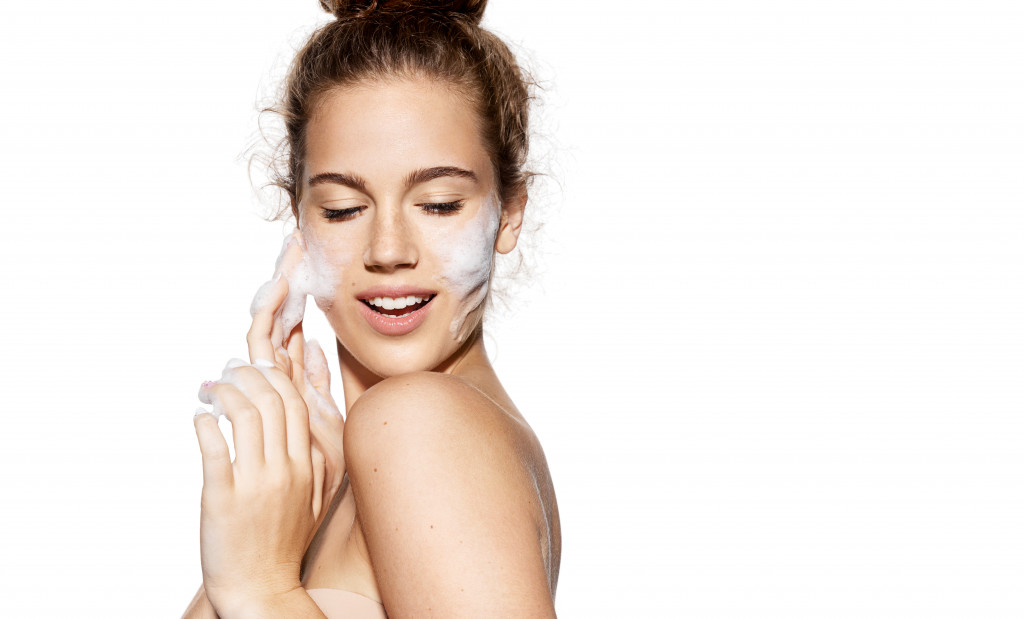The world is becoming increasingly complex, yet the skincare business adapts. Year after year, it seems like you need a new degree to differentiate between fads and suitable skincare treatments. Maybe the sense that everything is too complex causes some individuals to seek easy solutions. Go to the kitchen, mix some “natural” items, and apply them on your face for a few minutes. Of course, what you eat can affect your skin. Sadly, meals put on the front will never be as effective as cosmetic items developed in state-of-the-art labs. Whereas most DIY skincare recipes have little to no impact, there are specific online suggestions that are either harmful or very harmful to the skin.
Cancer Danger: DIY Sunscreen
Each scorching sunburn raises your risk of skin cancer. It implies you need to be extremely careful while selecting sun protection. Homemade sunscreen is not only less reliable than sunscreens containing just zinc oxide or titanium dioxide, but it also does not pass any quality check. Neither you nor your natural skincare expert can be sure of the component concentration and application uniformity required for adequate UV protection. If you’ve tried many sunscreens and none of them work, see a dermatologist. Regardless, DIY is too risky. If you want to protect your skin and yourself, you’d better consult a dermatologist or a professional who studied in a premium beauty school.
Don’t Put Pure Lemon Juice on Your Skin
Put some lemon juice in your cup of soda, and you’ll be delighted. But when lemon juice is applied to the skin, it damages the skin’s natural protective barrier and enhances its sensitivity to light. Consequently, someone who uses lemon juice to get rid of sunspots increases the number of sunspots on their skin. Skin becomes weaker and more prone to irritation, resulting in severe acne outbreaks if not treated promptly.

DIY Scrubs Are Too Harsh
Face washing has never been a bright idea, particularly for patients who experience breakouts or have delicate skin since it can irritate them. DIY scrubs, including baking soda, cinnamon, sugar, and other abrasive ingredients, on the other hand, can be very harmful to your skin. Baking soda depletes the skin’s lipid layer, leaving it more susceptible to dryness and accelerated aging as a result. Scrubs prepared with cinnamon, sugar, and other similar ingredients scrape the skin, causing tiny sores to appear on the surface of the skin. Skin becomes more susceptible to inflammation and infection as a result of this condition.
Stop Putting Armpit Products on Your Face
According to our assumptions, this tip was developed to reduce oil output. The issue is that the sebaceous glands and the sweat glands are two entirely different organ systems. Because of the presence of aluminum salts and strong scents in the product formulation, a person who applies deodorant to their face is likely to experience severe discomfort. Additionally, it clogs pores, causing acne-prone skin to respond quickly after application.
Know When to Use Oil
Although treatments such as almond or grapeseed oil can provide nearly immediate moisturizing and comfort in the short term, the long-term impact is the polar opposite of this. Oil at 100 percent concentration forms a film on the skin’s surface, making it difficult for your skin to “breathe” properly and stops water from evaporating. Skin metabolic activities are slowed as a consequence, and the skin becomes dehydrated due to this.
Furthermore, if you have oily skin, the majority of oil clogs the pores, resulting in acne outbreaks in addition to the other side effects already mentioned. Many kinds of oil are suitable for use when they are selected and appropriately utilized. For example, when they are used for spot application or one-time treatments, they can be washed away afterward. Using oil to substitute your regular moisturizer on a routine basis is not the intention here.
Toothpaste Is for Brushing
The use of toothpaste can cause significant irritation and even chemical burns to your skin since it is hostile to your skin. As a result of the large number of products intended to solve this issue, we cannot determine who came up with the concept or why it is still being copied today.
There are hundreds of articles devoted to DIY beauty remedies that can help with anything from cleaning acne to erasing hyperpigmentation, all utilizing materials that can be found in your kitchen cupboards and refrigerator. If this seems too fantastic to be accurate, it is because it is, for the most part, genuine. Many of the suggested substances should only be used for body hygiene or food preparation and should not be applied to the skin.




